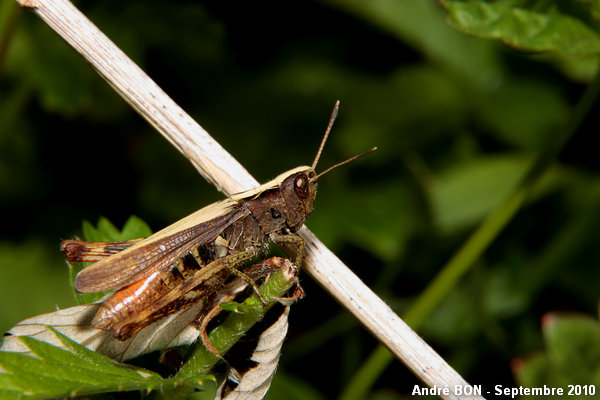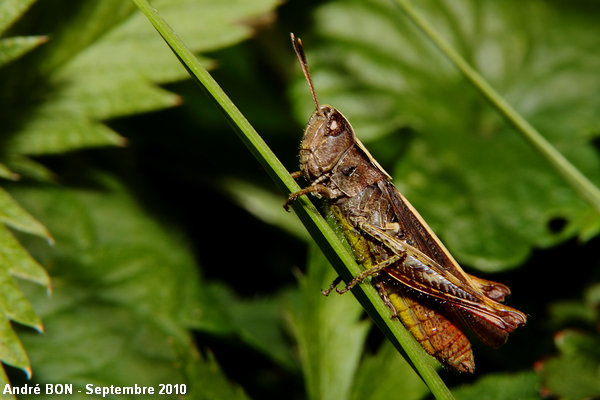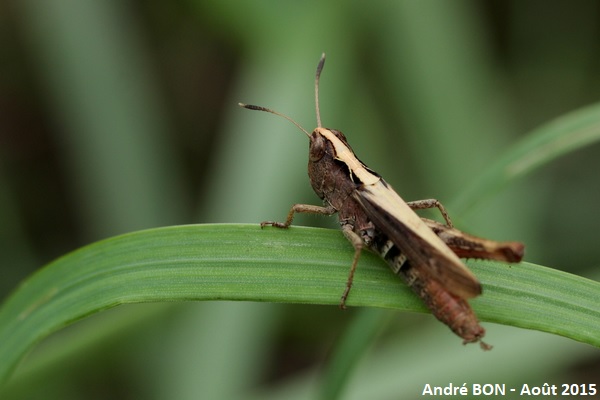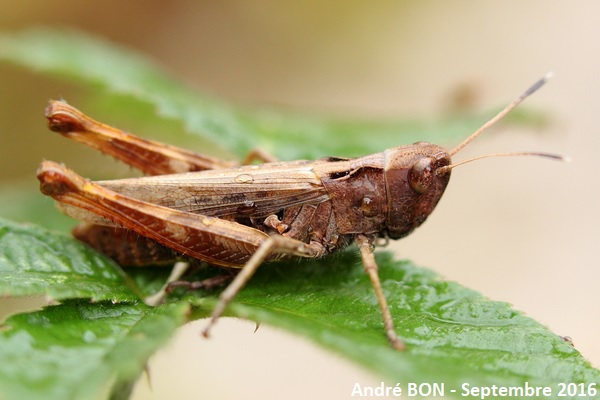



| Rufous Grasshopper (Gomphocerippus rufus (Linnaeus, 1758)) |




|
|
Scientific name: Gomphocerippus rufus (Linnaeus, 1758) Common name: Rufous Grasshopper Other names: Other scientific name: Gomphocerus rufus. French name: Gomphocère roux Order: Orthoptera Family: Acrididae Wingspan : Males: 14 to 16 mm; females: 17 to 24 mm. Biotope: Clearings, woodland edges. Dry and calcareous or slightly damp places with bushes. The Rufous Grasshopper is often seen perched on plants and seldom on the ground. Geographic area: Europe, Near East, Asia east to Siberia. Observation period : Late July to mid-December. |
The ground colour of the Rufous Grasshopper's body varies from dull brown to dull grey. Mature males have orange reddish tibiae and an orange reddish abdomen tip. There is a small lobe at the base of the tegmina, which is typical to the Chorthippus and Gomphocerus / Gomphocerippus genus. The median zone of the tegmen is not dilated. You can tell the Rufous Grasshopper apart with its antennae whose extremity is black, club-shaped (or rather spatulate) with a white pointed tip. This characteristic is less marked on females than on males. The wings are well developed on both sexes. |
| [To know more about the Rufous Grasshopper] [Next picture] [Top] |

|
There is a lobe at the base of the tegmen, the median zone is not dilated, the abdomen tip is a reddish orange colour, the antennae are club-shaped with a pointed white tip, everything matches the identification of the Rufous Grasshopper species. |
| [To know more about the Rufous Grasshopper] [Next picture] [Previous picture] [Top] |

|
The typical shape of the antennae is even more visible on this picture. |
| [To know more about the Rufous Grasshopper] [Next picture] [Previous picture] [Top] |

|
The reddish orange abdomen tip may indicate a male. |
| [To know more about the Rufous Grasshopper] [Previous picture] [Top] |

|
Finally all the observed specimens bear a reddish orange abdomen tip. Am I only observing males? |